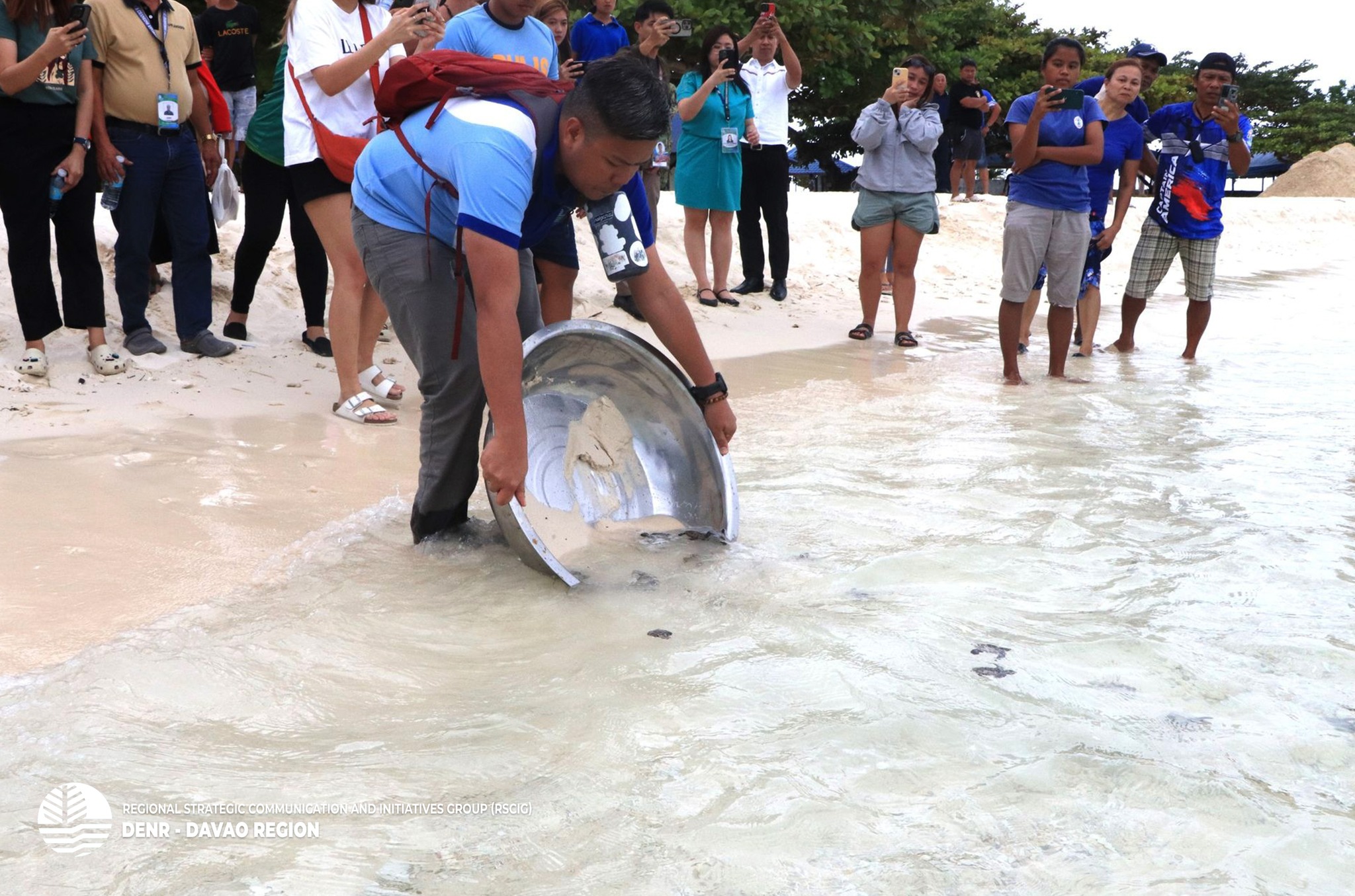- Samal resort releases 135 turtle hatchlings to the sea
A PRIVATE resort in the Island Garden City of Samal (IGaCoS) finally released to the sea a total of 135 turtle hatchings on Jan. 22 after receiving a warning from the Department of Environment and Natural Resources.
In a Facebook post, the Department of Environment and Natural Resources (DENR) XI stated the resort cooperated after receiving the Notice of Violation.
The department flagged the resort for refusing to release the turtles following an inspection on Jan. 16, where it was found out the hatchlings were Hawksbill sea turtles, categorized as critically endangered under Department Administrative Order (DAO) 2019-09.
Before the release, the DENR held a dialogue with the resort management, along with the Philippine National Police Maritime Group (PNP-MG) and the local government unit for a seamless transition of the turtles from the shore to the sea.
“A basin was filled with sand from or near the nest, creating a makeshift environment that mirrored the turtles’ birthplace,” DENR-Davao wrote.
“This simulated emergence not only provided a safer transition for the young sea turtles but also emphasized the importance of replicating their natural habitat. The meticulous effort to recreate this crucial phase in their lives showcased a dedication to the well-being and successful release of these endangered creatures,” the post reads.
Isla Resort owner Mario Reta signed a memorandum of agreement with DENR Davao and vowed to be their conservation partner, which included strengthening community knowledge on proper wildlife handling.
The issue arose when the resort announced on its Facebook page on Jan. 15 that it would raise the turtle hatchlings and release them after six months, which gained the attention of netizens and environmental groups like the Interfacing Development Interventions for Sustainability (IDIS).
Willfully and knowingly exploiting wildlife resources through collecting, hunting, or possessing wildlife, by-products and derivatives is considered unlawful under Republic Act 9147 or the “Wildlife Resources Conservation and Protection Act”. Offenders may face a fine of P30,000 to P300,000 and two to four years of imprisonment.

